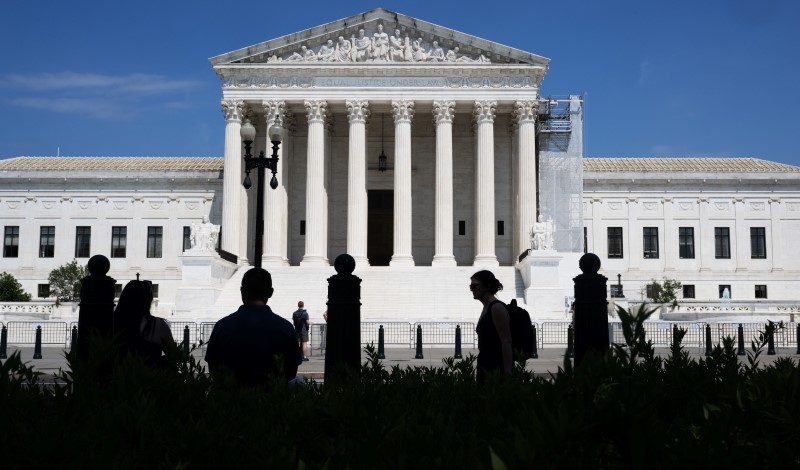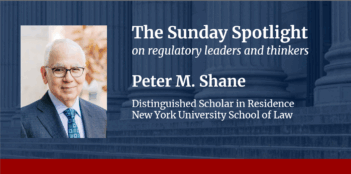
The petitioners in Consumers’ Research v. CPSC lack standing to challenge the Commission’s removal protection.
At the U.S. Supreme Court’s September conference, it will be asked, in Consumers’ Research v. Consumer Product Safety Commission, to grant review and decide an important separation of powers question: whether the statutory provision that protects the five Consumer Product Safety Commission (CPSC) commissioners from being removed from office at-will by the President , except for neglect of duty or malfeasance in office, is constitutional. However, because the petitioners lack standing, the Court should deny review and await a case in which the issue is properly presented.
There is no doubt that the issue of removal at-will for members of multi-member agencies is significant. The issue was expressly left open in Seila Law v. Consumer Financial Protection Bureau. It is also true that there are a number of federal agencies besides the CPSC that would be affected by the constitutional question. The problem is that, despite the fact that the district court and every judge on the full U.S. Court of Appeals for the Fifth Circuit supported the standing of the petitioners, they cannot show that they were harmed by the President’s inability to supervise the five commissioners in their handling of the petitioners’ claims in this case, which is what Article III of the U.S. Constitution requires.
To begin, the petitioners, including Consumers’ Research, are not manufacturers or sellers of a product that the CPSC regulates; they are not subject to any CPSC regulations; and they have not had any enforcement actions brought against them. They also do not allege that the CPSC has, for example, failed to regulate toys such that their children are placed in danger. Instead, they are two educational organizations that often submit requests for CPSC records under the Freedom of Information Act (FOIA), and they did so here.
They described their harm as being “subject to FOIA procedures administered by an agency that is unconstitutionally insulated from the President” because this “violates the separation of powers.” Two other counts challenge a recent FOIA rule issued by the agency and the denial of a recent FOIA request. The President had nothing to do with the issuance of the challenged rule or the denial of the FOIA request, nor has the President attempted to fire any of the commissioners. The inability of the President to fire CPSC commissioners has nothing to do with the rule that petitioners oppose nor the denial of their FOIA request, and there is no basis to conclude that if the removal protections were stricken, either the rule would be changed or their request for records granted.
The lower courts relied on two Supreme Court decisions that did reach the legality of removal restrictions where the President had not sought to remove any official protected by them or otherwise sought to intervene in a relevant agency proceeding. In Free Enterprise Fund v. Public Accounting Board, after rejecting a claim that the officers at issue were not lawfully appointed, the Court decided that the applicable limits on removal were unconstitutional, without discussing the standing of the plaintiffs to raise that claim. The Court in Seila Law briefly discussed the standing issue as applied to the agency head there, and it relied on the fact that the Court had decided a similar issue in Free Enterprise, without noting that the issue of standing was never raised there. But at least in those cases, the objecting parties were subject to regulation by the agency—generally in the case of Free Enterprise, and subject to a specific demand for information in Seila Law. Neither petitioner in Consumers’ Research is regulated by the CPSC.
There is a more fundamental problem involving petitioners’ standing to object to the inability of the President to fire CPSC commissioners at will. Petitioners’ suit was brought under FOIA, but neither the CPSC nor the President, nor any other federal agency “regulates” anyone under FOIA, nor do any of them bring enforcement actions against private parties under FOIA. It is the other way around. Congress has empowered private parties to sue federal agencies to require them to comply with FOIA, with the federal courts having the duty to order agencies to follow the law. Thus, all the discussion in the petition about the power of the CPSC to regulate wide swaths of U.S. industry has nothing to do with the enforcement of the FOIA claims that are the basis of the complaint in this case.
Moreover, whatever powers the President may have to enforce most federal laws, FOIA is a very different kind of law in which the President has almost no role. As noted above, the usual situation in which agencies go to court to enforce federal laws is reversed here, where private parties do the enforcing. In addition, Congress did provide for a limited role for the President in FOIA, but it has nothing to do with enforcing the law. Under section 552(b)(1)(A), FOIA excludes materials covered by presidential executive orders with classified information from being made public. Of course, the President can urge agencies to be more forthcoming in their responses to FOIA requests, and a President’s Department of Justice, which defends agencies in FOIA litigation, can also take positions more favorable to requesters. But in the end the courts decide whether a record must be disclosed, no matter what the agency’s policy may be and regardless of whether the agency head can be removed by the President.
The bottom line is that if petitioners’ standing is upheld here, any person can file a FOIA request with any agency and, when it is denied, can seek to overturn that denial based on any separation of powers claim they can invent. Article III’s case or controversy requirement does not tolerate standing based on the kind of claims that petitioners have asserted here.
There is one other development in this case that demonstrates that the petitioners are not interested in changing the rule that they challenged nor overturning the denial of the records they requested. The only basis in their complaint for those two specific objections was the limit on the President’s removal power. However, when the Fifth Circuit ruled against them on that ground, they did not argue on non-constitutional grounds for the same result. Indeed, when the district court entered judgment against them on their two specific claims, it was the petitioners who sought and obtained summary affirmance of that adverse ruling in order to clear the path to file their separation of powers cert petition with the Supreme Court.
The substantive issue presented is a very important one, but it is not one that can be adjudicated in this case. Hopefully, the Solicitor General will oppose the petition on both standing and the merits in her opposition brief, which is due August 19. For these reasons—despite the petition’s claim that this case is an excellent vehicle to decide the constitutional issue and the support of eleven amicus briefs mainly from the business community—the Court should deny the petition and await a real case in which a President tries to fire a commissioner who then sues to keep his job or obtain his back pay. That case would satisfy Article III.




